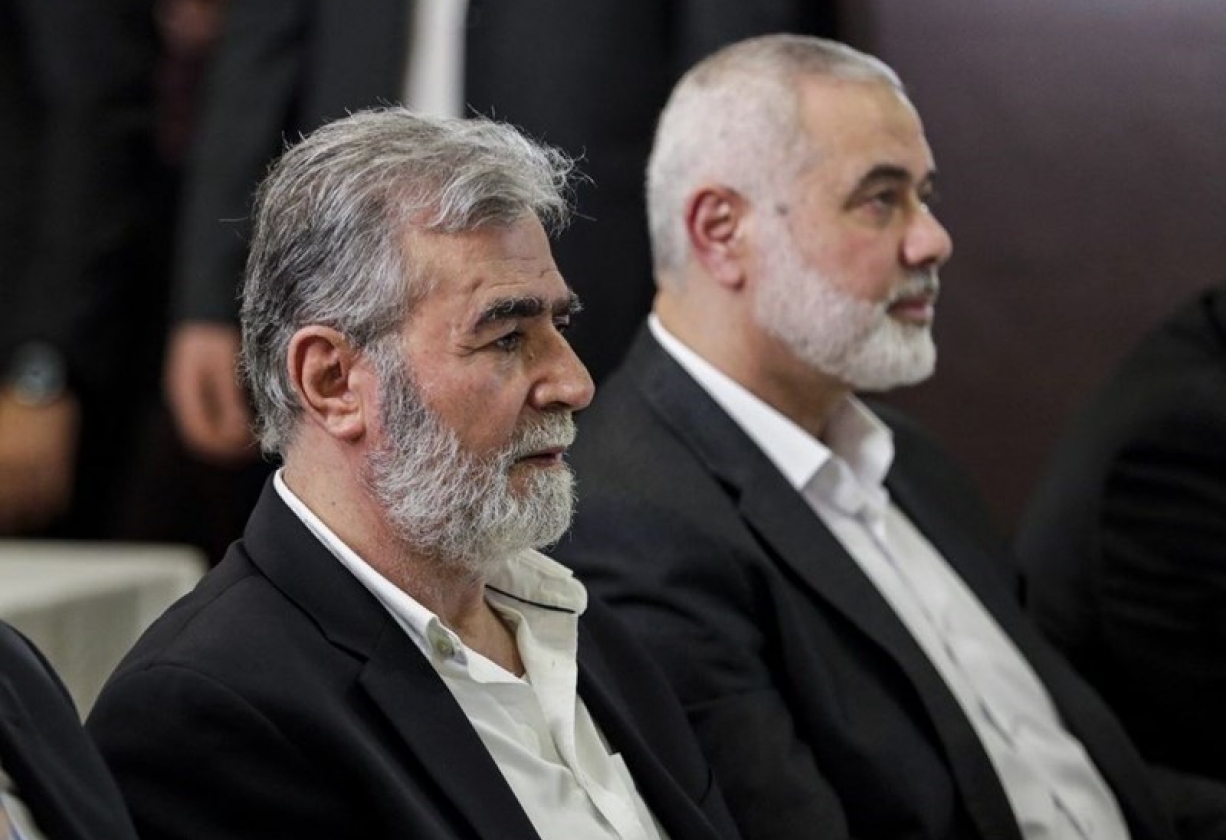The Israeli military escalation against the Al-Jihad al-Islami movement in the West Bank since August 2022 ignores the geographical and operational differences between the West Bank and the Gaza Strip.
For instance, when Al-Jihad al-Islami responded to Israel’s assassination of one of its military commanders in the Jenin area of the West Bank by firing several rockets from the Gaza Strip towards Israel’s “Gaza envelope” settlements on December 3, 2022, Israel launched limited air strikes on the Gaza Strip, prompting Hamas, which controls the Strip, to announce that its air defenses had repulsed Israeli airstrikes, which caused no casualties.
This incident comes more than a year after a major military escalation in the Gaza Strip between Hamas and Israel, which eventually led to a truce. The parties reached security understandings through international and regional mediation, which were then followed by negotiations between Hamas and Israel to exchanging prisoners.
Therefore, Al-Jihad al-Islami’s use of the Gaza Strip as a second arena for escalation against Israel may have deleterious repercussions on implicit understandings between Hamas and Israel. It may also negatively affect Hamas’s new political track that seeks to strengthen its regional and international status and interests, and, thereby, alter the delicate relations between Hamas and Al-Jihad al-Islami.
Hamas and Jihad: A Complicated Relationship
The relationship between Hamas and Islamic Jihad is characterized by intricate dynamics that rely on a fragile equilibrium. Following Hamas’ takeover of the Gaza Strip in 2007, the relationship between the two groups shifted from being a competition between factions to a relationship based on a center-periphery model.
Their relationship has entered a new phase, which has been strengthened by security agreements between Hamas and Israel that were facilitated by Egypt and Qatar. These agreements became most apparent during a military escalation between Israel and Islamic Jihad in August 2022 following the assassination of Islamic Jihad military commander Tayseer al-Jabari and several other activists in Gaza. Despite this, Hamas maintained a diplomatic stance and did not involve their military wing, the Izz al-Din al-Qassam Brigades, in the conflict.
However, Hamas’ stance took a tougher turn when its internal security arrested two activists from an unnamed militant group in early November 2022 just one day after their involvement in firing rockets towards Israel on November 4, 2022. Hamas’ swift response sent a message that it would not tolerate rocket launchers as an attempt to sabotage its security understandings with Israel.
Deadlock
The recent rocket fire was not officially claimed by the Islamic Jihad movement, possibly to avoid embarrassing Hamas and its security agreements with Israel. However, it could also be due to a state of rebellion among military groups affiliated with Jihad that do not want to follow Hamas’ security agreements. This is particularly relevant given the ongoing Israeli escalation against Jihad members in Jenin and the West Bank.
If the Israeli escalation in the West Bank persists, it will exacerbate the crisis within the Islamic Jihad movement in the short term if they continue to adhere to Hamas’ agreements. However, if the escalation results in violence, casualties, and harm to the Al-Aqsa Mosque, it could potentially create a crisis within Hamas itself. Such a situation is unlikely to be tolerated by the Palestinian public, including Hamas supporters, in the long run.
In the short term, it is possible that the Islamic Jihad movement in Gaza may opt for a military response, challenging the authority of Hamas and its security agreements with Israel. This could potentially lead to clashes between Hamas and Jihad, and, in the long term, result in a significant deterioration of the overall security situation. However, if Hamas decides to participate in the military response to Israeli escalation from Gaza, this could also lead to similar consequences.
Finally, the future of Hamas’ relations with Al-Jihad al-Islami depends on a number of determinants, the most important of which is the level of Israeli escalation in the West Bank, including East Jerusalem, and the strength of Hamas’s official Arab relations, political interests, and regional calculations—all of which are rapidly changing determinants in a reality that could explode at any moment.
Keep in touch
In-depth analyses delivered weekly.

Related Analyses:










